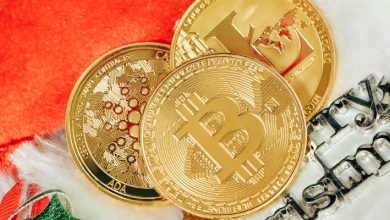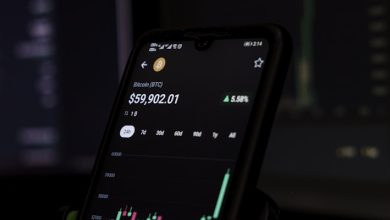What is Market Cap? Understanding Crypto Valuation

- Introduction to Market Cap and its importance in cryptocurrency
- How is Market Cap calculated and why is it significant?
- Market Cap vs. Price: Understanding the difference
- Factors affecting Market Cap in the crypto market
- The role of Market Cap in determining a cryptocurrency’s ranking
- Market Cap and its implications for investors in the crypto space
Introduction to Market Cap and its importance in cryptocurrency
Market capitalization, or market cap, is a fundamental concept in the world of cryptocurrency. It is a measure of the total value of a digital asset, calculated by multiplying the current price of the coin by the total number of coins in circulation. Market cap is an important metric for investors and traders as it provides insights into the size and stability of a cryptocurrency.
Understanding market cap is crucial for assessing the potential growth and risk of an investment in the crypto market. A high market cap generally indicates that a cryptocurrency is well-established and widely adopted, making it less volatile compared to smaller-cap coins. On the other hand, coins with lower market caps have the potential for higher growth but also come with increased risk.
Investors often use market cap as a key factor in their decision-making process, as it can help them identify opportunities and manage their risk exposure. By analyzing the market cap of different cryptocurrencies, investors can gain a better understanding of the overall market trends and make more informed investment decisions. In the volatile world of cryptocurrency, market cap provides a valuable tool for evaluating the potential value and performance of digital assets.
How is Market Cap calculated and why is it significant?
Market Cap is calculated by multiplying the current price of a cryptocurrency by the total number of coins or tokens in circulation. This gives investors an idea of the total value of a cryptocurrency and its ranking in the market. Market Cap is significant because it provides a quick way to assess the size and importance of a cryptocurrency in comparison to others.
Market Cap vs. Price: Understanding the difference
Market cap and price are two key metrics used to evaluate the value of a cryptocurrency. While they are related, it is important to understand the difference between the two. Market cap is calculated by multiplying the current price of a coin by the total number of coins in circulation. This gives you a rough estimate of the total value of the cryptocurrency in the market. On the other hand, price simply refers to the current cost of purchasing one unit of the cryptocurrency.
Market cap is often considered a more accurate measure of a cryptocurrency’s overall value compared to price alone. This is because market cap takes into account the total supply of the cryptocurrency, giving a better indication of its size and significance in the market. Price, on the other hand, can fluctuate based on supply and demand factors, without necessarily reflecting the true value of the cryptocurrency.
Investors should be cautious when evaluating cryptocurrencies based solely on price, as it may not provide a complete picture of the asset’s worth. Market cap, on the other hand, offers a more comprehensive view of the cryptocurrency’s valuation. By understanding the difference between market cap and price, investors can make more informed decisions when buying or selling cryptocurrencies.
Factors affecting Market Cap in the crypto market
Factors affecting Market Cap in the crypto market include various aspects that can influence the overall valuation of a cryptocurrency. These factors play a significant role in determining the market capitalization of a digital asset, which is a key metric used by investors to assess the size and potential of a cryptocurrency. Some of the key factors that can impact the market cap of a cryptocurrency are:
1. **Market Demand**: The level of demand for a particular cryptocurrency can have a significant impact on its market cap. Higher demand usually leads to an increase in the price of the cryptocurrency, which in turn can boost its market capitalization.
2. **Supply Circulation**: The total supply of a cryptocurrency in circulation can also affect its market cap. Cryptocurrencies with a limited supply tend to have a higher market cap as they are perceived to be more valuable.
3. **Market Sentiment**: The overall sentiment of the market towards a cryptocurrency can influence its market cap. Positive news and developments can drive up the market cap, while negative news can have the opposite effect.
4. **Regulatory Environment**: The regulatory environment in which a cryptocurrency operates can impact its market cap. Uncertainty or unfavorable regulations can lead to a decrease in market cap, while clear and supportive regulations can boost it.
5. **Technology and Development**: The technology behind a cryptocurrency and its ongoing development can also affect its market cap. Cryptocurrencies with innovative technology and active development teams tend to have higher market caps.
6. **Competition**: The level of competition within the cryptocurrency market can impact the market cap of a digital asset. Cryptocurrencies that offer unique features and benefits may have a higher market cap compared to those that face stiff competition.
Overall, these factors collectively contribute to the valuation of a cryptocurrency and its market cap. Understanding these factors can help investors make informed decisions when it comes to investing in the crypto market.
The role of Market Cap in determining a cryptocurrency’s ranking
The market capitalization of a cryptocurrency plays a crucial role in determining its ranking within the market. Market cap is calculated by multiplying the current price of a token by the total number of tokens in circulation. This metric provides investors with valuable information about the size and scale of a particular cryptocurrency.
Market cap is often used as a key indicator of a cryptocurrency’s overall value and popularity. Cryptocurrencies with a high market cap are typically seen as more established and stable, attracting a larger number of investors. On the other hand, cryptocurrencies with a lower market cap may be more volatile and risky.
Investors often look at market cap when deciding where to allocate their funds. A high market cap can indicate that a cryptocurrency is well-established and has a strong community of supporters. Conversely, a low market cap may suggest that a cryptocurrency is still in its early stages of development.
In the world of cryptocurrency, market cap is a key metric that can influence the perception and ranking of a particular digital asset. By understanding how market cap is calculated and its significance in the market, investors can make more informed decisions when navigating the complex world of cryptocurrencies.
Market Cap and its implications for investors in the crypto space
The market capitalization of a cryptocurrency is a crucial metric that investors in the crypto space should pay close attention to. It represents the total value of all the coins or tokens in circulation and is calculated by multiplying the current price of the cryptocurrency by its circulating supply. Market cap gives investors an idea of the size and scale of a particular cryptocurrency, and it can also provide insights into its potential for growth and stability.
Investors often use market cap as a way to evaluate the risk and return potential of a cryptocurrency. Generally, cryptocurrencies with a higher market cap are considered to be less risky and more stable investments, as they have a larger user base and are more widely recognized in the market. On the other hand, cryptocurrencies with a lower market cap may have higher growth potential but also come with greater risk.
It is important for investors to consider market cap in conjunction with other factors such as trading volume, development team, and use case when making investment decisions in the crypto space. While market cap can provide valuable information about a cryptocurrency, it is not the only factor to consider when evaluating its potential for success. By conducting thorough research and analysis, investors can make more informed decisions and navigate the complex world of cryptocurrency investing with greater confidence.



